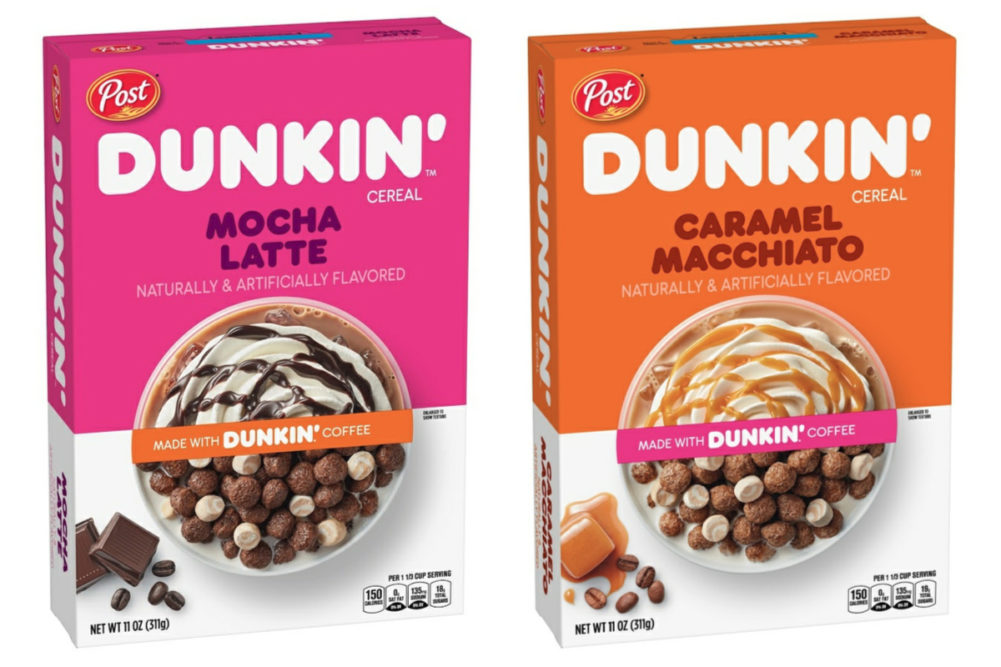ST. LOUIS — Weak fourth-quarter sales in the company’s North American ready-to-eat cereal business and a forecast for weaker earnings ahead spooked investors, triggering a decline in the share price of Post Holdings, Inc. For the year ended Sept. 30, adjusted net earnings at Post Holdings were down 50% from fiscal 2019.
Operating income of Post Consumer Brands in the fourth quarter was $92.9 million, up 7% from the final quarter a year earlier. Sales in the division, the company’s RTE cereal business, were $471.9 million, down 3.2% from the same period the year before. Volume for the quarter dropped 6.3%.
In trading Nov. 20 on the New York Stock Exchange, Post Holdings shares closed at $90.53 per share, down $6.17, or 6%, from $96.70 ahead of the earnings release. The company’s shares were down 13% from a recent peak of $104.22 on Nov. 16.
Post said growth in its branded cereals business was offset by declines in private label and government bid business, Malt-O-Meal bag cereal and licensed brand cereal. Post said some of the business was low margin relationships it intentionally exited. Additionally, lower promotional spending and favorable mix partially offset the negative impact of the volume decline.
For fiscal year 2020, segment profit was $393.5 million, up 17% from $337.1 million the year before. Sales were $1.95 billion, up 3.9% from $1.88 million the prior year.
In a conference call with analysts Nov. 20, Jeff A. Zadoks, executive vice president and chief financial officer, said Post’s largest breakfast cereal brands enjoyed mid-single digit volume growth in the fourth quarter.
“Legacy Post-branded cereals, such as Honey Bunches of Oats, Pebbles and Great Grains continue to show strong volume growth, up 5% in the aggregate this quarter,” he said. “This strong performance was outweighed by declines in private label and government bid business, Malt-O-Meal bag cereal and licensed brand cereal. Surge demand from Malt-O-Meal bag cereal products in prior periods caused challenges in our supply chain and impacted our fill rates this quarter. Moreover, we saw a channel shift in category demand for mass to traditional grocery and these products over-indexed to mass.
“Partially offsetting these volume declines was a 3.3% improvement in average net pricing resulting from reduced promotional activity and favorable product mix.”
Asked during the call about the decline in licensed brand cereal, Robert V. Vitale, president and chief executive officer, said Post has lost market share in this segment of the business.
“A couple of years ago we were early in the introduction of a family of licensed brands, and there was a very rapid run-up to a point where we had about a full share,” he said. “Our competitors followed suit with different families of similar-oriented products, and that demand pool got redistributed. And I think what we ultimately had was some rented share that was really not ours to own. So we have surrendered a good portion of that share and are seeking to replace it with some more fundamental innovation, including things like our more adult-oriented products around Dunkin’ coffee-based products and some — they happen to also be licensed brands, but they’re more targeted and nuanced brands. That launch has gone quite well. We have, at the same time, launched a Tim Hortons in Canada. It has been one of the best launches in Canada in recent years.”
Post Holdings net income in fiscal 2020 was $800,000, equal to 1¢ per share on the common stock, down sharply from $122 million, or $1.72 per share, in fiscal 2019. Sales were $5.7 billion, up slightly from $5.68 billion the year before. Adjusted earnings were $189.8 million, down 50% from $378 million.
In the fourth quarter, net income was $57 million, equal to 85¢ per share, versus a loss of $61.1 million in the fourth quarter the year before. Net sales were $1.41 billion, down 2.2% from $1.44 billion in July-September last year.
Adjusted net earnings were $39.5 million, down 63% from $107 million in the fourth quarter last year.
Looking forward Post said it expects the COVID-19 pandemic to extend at least six months into fiscal 2021 and projected adjusted EBITDA at $520 million to $550 million during this period, with most of the earnings expected in the first quarter. In fiscal 2020, adjusted EBITDA was $595 million in the first half of the year. In fiscal 2019, the figure was $591.4 million.
“Based on the recent vaccine news, we are cautiously optimistic that the pandemic will have waned by the midpoint of our fiscal 2021,” Mr. Vitale said. “Meanwhile, we have growing concern that the ensuing months will bring new challenges with respect to managing our supply chains without some degree of interruption, as COVID impacts our workforce. While we have clusters of outbreaks across our business, this is a generalized concern rather than a reaction to anything specific.”
At the start of the fourth quarter, Post Holdings completed the acquisition of Henningsen Foods, Inc., an Omaha, Neb.-based manufacturer of value-added egg, meat and poultry products. Subsequent to the end of the quarter, an initial public offering of a minority interest in the Post BellRing business was completed. BellRing Brands, Inc. makes ready-to-drink protein shakes, other RTD beverages and nutrition bars.






